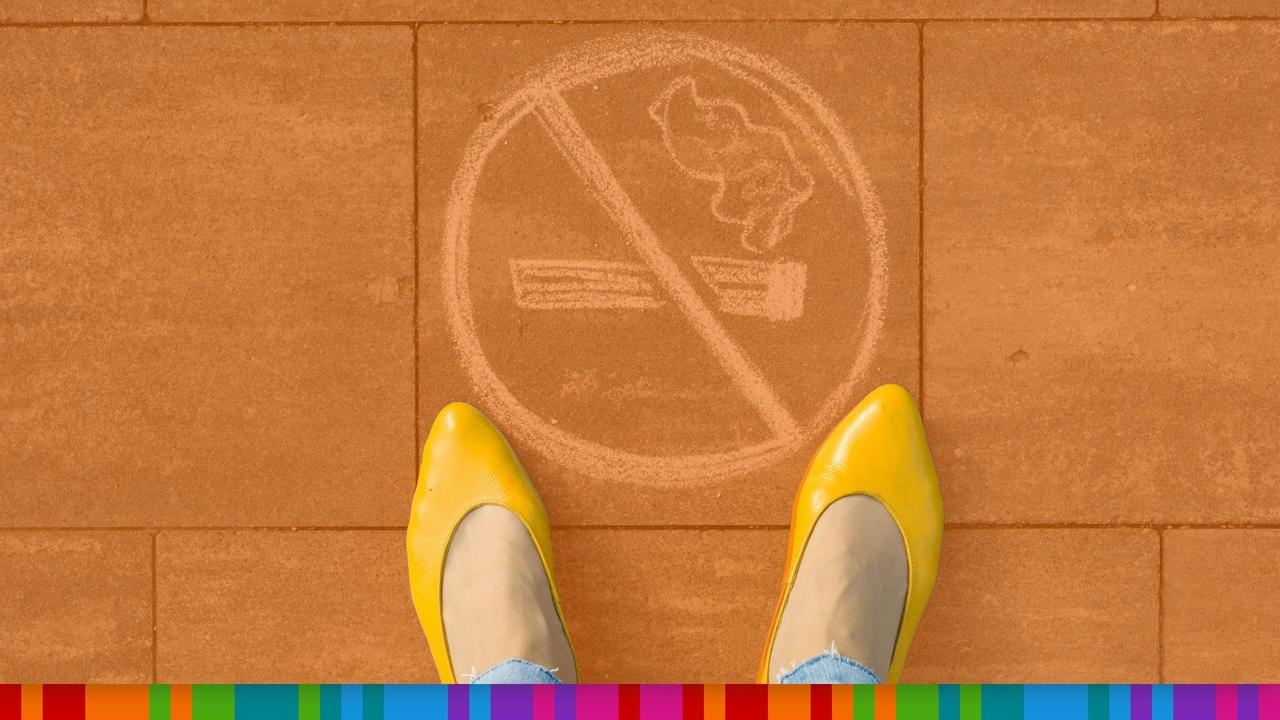First posted on News.com.au on 10 December 2021 https://www.news.com.au/lifestyle/health/new-zealand-smoking-ban-will-australia-adopt-the-same-law-changes/news-story/e613e45d86ba00bf47b5c4b69710216c
It appears Australia won’t be implementing the “groundbreaking” smoking laws New Zealand has announced, even though Australian experts have praised them.
On Thursday New Zealand unveiled its plan to phase out smoking almost entirely, by gradually increasing the number of people who cannot legally purchase cigarettes.
The country will pick a date, and from that date anyone aged 14 or under will be permanently banned from buying smoked tobacco products – even once they become adults.
As a result, no future generations will ever be able to buy cigarettes.
New Zealand will also limit the number of stores that can sell cigarettes, and lower the level of nicotine allowed in tobacco products.
New Zealand has unveiled a plan to stop future generations from smoking.
Associate Professor Coral Gartner, an international expert in tobacco control policy with the University of Queensland, said Australia should definitely be looking at how it could implement similar measures.
While Prof Gartner said more research was needed on the “smoke-free generation” idea, she fully supported the nicotine reduction measure and said reducing the retail availability of cigarettes should be looked at as a matter of urgency.
“That’s moving out of just the general retail shopping environment to initially maybe some controlled outlets where people would be offered quit support or other products like nicotine replacement therapy as well,” she explained.
“There’s been very little innovation in our approach to controlling tobacco in the last ten years; 2012 is when the plain packaging laws came in and since then there’s really been just the focus on increasing the tax every year which has reduced the affordability.
“We also need to look at other approaches because the decline in smoking has slowed down in the last few years so it suggests it’s not really enough to achieve big goals like reducing smoking to less than five per cent by 2030.”
Tobacco control policy expert Associate Professor Coral Gartner says Australia needs to do more.
Is Australia likely to follow New Zealand’s lead?
The Australian government has set a target to reduce the smoking rate to below 10 per cent by 2025.
It says this target is consistent with Australia’s international legal obligations as a party to the World Health Organisation Framework Convention on Tobacco Control.
New Zealand’s goal is to reach less than five per cent by the same year. Figures show 11.6 per cent of NZ adults over 15 years of age smoke daily.
In Australia, the latest data from 2019 shows it’s 11 per cent of people over 14 years of age and 11.6 per cent for those over 18 years of age.
11 per cent of Australians over 14 smoke daily.
Australia’s federal Department of Health did not say whether it was considering implementing laws like New Zealand’s when asked by news.com.au.
“There is strong evidence that comprehensive public health strategies focusing on both the supply and demand of tobacco are most likely to achieve long-term health gains, prevent the uptake of smoking and reduce smoking prevalence,” a department spokesman said.
“The government will continue to work with state and territory governments to explore a range of new evidence based measures to further reduce smoking prevalence having regard to both supply reduction and demand reduction measures.”
Shadow health minister Mark Butler, meanwhile, made it clear that Labor has no plans to introduce laws similar to New Zealand.
Tobacco use was estimated to kill more than 20,000 Australians in 2018 and remains the leading cause of preventable death and disability.
Tobacco control policy expert Associate Professor Coral Gartner says Australia needs to do more.
What Australian health experts think of New Zealand’s move
Dr Raglan Maddox, a tobacco control expert with the Australian National University, said while the “smoke-free generation” was a great concept and practical recommendation, it was New Zealand’s whole plan that had him impressed.
He told news.com.au there was no reason why Australia couldn’t take a similar approach
“I think what’s really exciting about the work that is happening there in New Zealand is it’s one component of a multifaceted approach,” Dr Maddox said.
“It’s a comprehensive approach to both reduce supply but also demand on tobacco sales. “There’s probably nothing more important than the health and wellbeing of our children and future generations.
“Australia has been a world leader in tobacco control … we’ve seen unfathomable declines in tobacco prevalence across the country but I think it’s something we need to see continue.”
The Cancer Council is concerned about the trend of vaping among young people.
Cancer Council Australia said it would be monitoring the implementation of New Zealand’s laws very closely to see whether they prove effective.
“Australia has an incredibly proud history of being guided by evidence-based strategies, which has served us really well, including things like smoke-free environments, product warnings, plain packaging and investment in mass media campaigns,” Cancer Council public health committee chair Anita Dessaix said.
“I think we’ll monitor what happens in New Zealand but our focus absolutely has to be guided by evidence and what we know works.”
Ms Dessaix added that the “alarming trend” to keep an eye on in Australia was vaping.
“One of the things we’re closely monitoring in the Australian environment is increasing reports of teenagers and children being exposed to and taking up e-cigarettes,” she said.
“We’re going to keep a really close eye on and get some hard data and evidence and if we do see an alarming problem there is going to need to be swift action taken to protect Australia’s young people.”







